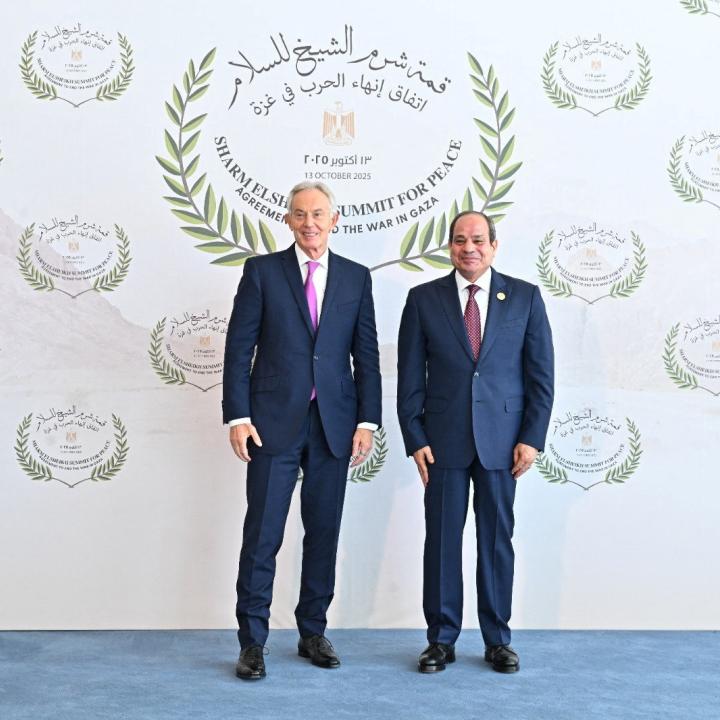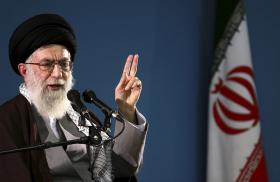
- Policy Analysis
- PolicyWatch 4126
Washington Needs to Intervene in Choosing Gaza’s “Technocratic, Apolitical” Governing Committee

Urgent U.S. action is needed to ensure that Hamas and its adherents do not find a backdoor into the various bodies that will govern the Strip, while simultaneously addressing the genuine dilemmas confronting leaders in Cairo and other Arab capitals.
As vigorous American and international efforts to stabilize the Gaza ceasefire and establish an International Stabilization Force (ISF) continue, Washington is focusing less on civilian governance in the Strip. In the meantime, regional efforts are under way to secure agreement between the Palestinian Authority and Hamas about the composition of the “technocratic, apolitical Palestinian committee” that will temporarily govern Gaza. Unless Washington clarifies its preferences and red lines on this issue, it runs the risk of legitimizing a future role for Hamas there, resulting in a fait accompli that is incompatible with American priorities.
Problems with the Current Approach
President Trump’s peace plan presents general outlines on civilian governance in Gaza, but they are relatively vague and lack operational details, and are thus open to interpretation. Article 9 stipulates that “Gaza will be governed under the temporary transitional governance of a technocratic, apolitical Palestinian committee,” with “oversight and supervision” provided by a “Board of Peace.” The committee will operate “until such time as the Palestinian Authority has completed its reform program.” Article 13 states that “Hamas and other factions agree to not have any role in the governance of Gaza, directly, indirectly, or in any form,” yet the remainder of the article deals with Gaza’s demilitarization rather than its governance. This vagueness raises a number of practical questions.
The most pressing and immediate question is, Who decides the committee’s composition and authority? Egypt is seeking to settle this question through a PA-Hamas agreement and has called for a “Palestinian dialogue” to discuss this, in addition to disarmament and other topics. While the dialogue has not been formally launched, Egyptian authorities are already holding separate sets of preliminary talks with the PA, Hamas, and other Palestinian factions, and lists of proposed committee members are already being circulated. Hamas has reportedly shown flexibility on the committee’s composition, understanding that nominating its members or affiliates would be a nonstarter.
The committee will undertake the civilian aspects of governing Gaza, like health and education. If successful, it would increase the legitimacy of both Gaza’s postwar architecture and the committee’s members. A poor performance or a governance vacuum, however, would have the opposite effect. In addition to committee members, who need to be demonstrably apolitical, it will be necessary to draw on existing government employees, raising complex issues regarding bureaucrats who served under the Hamas government. Excluding all of them could create a vacuum, but it would be difficult to separate technocrats from political apparatchiks. Vetting criteria need to be established with input from Israel and other sources.
Hamas is participating in the Egyptian-led process because it sees it as a way to legitimize its role in the future of Gaza and Palestinian politics generally. Even if the group does not directly participate in the Strip’s governance, its formal participation in creating and authorizing the committee is itself a political achievement, casting the terrorist organization as a legitimate actor in postwar Gaza and Palestinian politics. The PA, for its part, is wary of Hamas participation but is not in a strong enough position to prevent it.
This approach is problematic; a committee produced in such a manner would arguably contravene the plan’s clear stipulation that Hamas play no role “in any form.” Israel would also vigorously oppose such a committee, and Arab countries that are vehemently opposed to Hamas would be less likely to contribute to postwar rebuilding efforts.
Yet Egypt’s approach reflects genuine dilemmas. Cairo feels a real sense of urgency to address the question of civilian governance in order to create an immediate alternative to direct Hamas rule and, coupled with disarmament, to begin Gaza’s recovery and reconstruction. As Egyptian officials point out, no practical alternative has yet been presented, and absent a different international approach, securing Hamas’s agreement is the only pragmatic way to ensure Hamas does not disrupt the functioning of Gaza’s postwar governance structure.
What Alternatives Exist?
The obvious solution is for the “Board of Peace” to take on the task of creating the committee. But before that can happen, the board itself must be established and begin operations, with a robust executive arm that can address this issue. President Trump will chair this board, though no information has been given about which countries and officials will compose it, raising an urgent need for clarity on that front.
Moreover, while the Trump plan implies that the board should take on this role, it will still require additional sources of legitimacy. One option is to grant it this authority under a UN Security Council resolution. Indeed, the Security Council is already reportedly considering a resolution regarding the ISF. However, such resolutions are most effective when narrowly crafted, and expanding the one currently in the works could dilute the ISF’s security mandate.
Alternatively, the board could seek an invitation from the PA, as the internationally recognized Palestinian representative, to play this role. This would satisfy Arab states, many of which have long insisted that their role in Gaza should come through an invitation from the PA. Yet this approach would also sharply clash with Israel’s rejection of any role for the PA. Officials must therefore state clearly that the PA’s role at this stage will be limited to issuing an invitation, and that it will have no role in choosing the committee's members or carrying out its operations. This is consistent with the plan’s demand for PA reform.
U.S. Policy Recommendations
In the immediate term, the Trump administration must urgently reiterate its rejection of any process that gives Hamas a role in creating and authorizing the committee. The Egyptian-led process is well under way; if it comes to fruition before Washington takes a clear stand, it will be much more difficult to create an acceptable alternative at a later stage, and may pit the United States against Egypt and other regional actors.
Washington should also present the practical alternative approach of assigning the creation of the committee to the Board of Peace. This requires quick action to constitute the board and establish its executive arm. Civilian governance is just one of several issues in the plan that requires further elaboration. Issues such as coordinating the committee’s mandate and operation and those of the ISF are equally important and complex. Washington will likely not have the capacity to deal with such detailed issues as they arise in the future. The high-level U.S. engagement since President Trump brokered the ceasefire has been indispensable for stabilizing it, but such intervention is neither sustainable nor advisable in the long term and should be used sparingly and only in response to severe crises or to settle major policy questions, lest it loses its effectiveness. It should be left to the board to work out the details, and the sooner it is established, the more control the United States will have on interpretation and implementation of various aspects of the plan.
Washington should also tell the mediators that civilian governance in Gaza should be decoupled from disarming Hamas. The Trump plan recognizes that disarmament will be a process, and for certain aspects it even leaves open the possibility that this process may entail understandings with Hamas about how disarmament takes place (e.g., reference to a “buy back and reintegration program”). This reflects the complexity of disarmament and generally follows the approach adopted in disarmament processes elsewhere.
Governance, however, is more clear-cut, and there is no compelling logic to legitimizing Hamas by making it a formal partner in choosing the new governance system. Any concerns that Hamas may disrupt governance can be addressed through understandings between the mediators and Hamas and should not be enshrined in an agreement giving the group formal standing.
The sense of urgency in Cairo and other Arab capitals about establishing the committee is real and genuinely reflects the needs in Gaza. To persuade these states to change their current approach, Washington must assure them that an acceptable alternative that prevents a governance vacuum is forthcoming.
Ghaith al-Omari is the Gilbert Foundation Senior Fellow at The Washington Institute and a former advisor to the Palestinian Authority.



